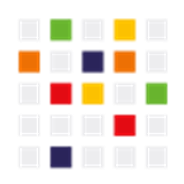The focus of this topic area is on the requirements for designing digital teaching and learning processes and the possibilities and limits of increasing individualization of education. The use of new technologies is examined here from a theoretical and application-oriented perspective. Our research focuses on the influence of digital change and digital technologies on the processes of education and competence development as well as the new requirements that will define these processes in the future. Applied research includes basic research as well as an ongoing transfer of requirements from practice (schools, universities, companies, society) and the application of research results to practice.
Our work is organized in the following subprojects:
Exploring human-AI interaction in a learning context.
Many uses of AI software applications in education lie in personalizing one-on-one instruction so that decisions are made about an individual learner's learning path and the content to be taught. In addition, AI can support collaborative learning by organizing the online collaboration of a learning group; it can replace teachers and connect with learners. Last but not least, intelligent virtual reality can be used to create authentic virtual realities and gamified learning environments or to have learners tutored by virtual tutors. Different levels of human-AI interaction exist, depending on the type of technical agents interacting with humans via mixed-initiative systems.
With this in mind, we explore human-machine interaction in digital learning environments in the context of education and corporate training.
Personalization and individualization in digital learning processes.
A key benefit of digital learning is greater individualization of the learning experience. The learning process and outcomes can be adapted to the learners' prior knowledge through careful organization of learning task, sequence, medium, etc. In addition, the increasing use of technology in the educational context allows for targeted control of individual learning paths and specific definition of learning times and goals. The targeted use of digital media can reduce inequalities among learners, so that lessons can be designed fairly and greater creative freedom is made possible for teachers and learners.
For this purpose, targeted inter- and transdisciplinary research is necessary, which allows to structure central characteristics of a learner in order to directly address the learning process.
Various empirical projects are carried out on these topics, such as literature analyses, studies, surveys and (laboratory) experiments.
